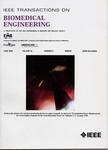版权所有:内蒙古大学图书馆 技术提供:维普资讯• 智图
内蒙古自治区呼和浩特市赛罕区大学西街235号 邮编: 010021

作者机构:Rutgers State Univ Ctr Caip Human Machine Interface Lab Piscataway NJ 08854 USA Univ Med & Dent New Jersey Robert Wood Johnson Med Sch Dept Urol New Brunswick NJ 08903 USA
出 版 物:《IEEE TRANSACTIONS ON BIOMEDICAL ENGINEERING》 (IEEE Trans. Biomed. Eng.)
年 卷 期:1999年第46卷第10期
页 面:1253-1260页
核心收录:
学科分类:0831[工学-生物医学工程(可授工学、理学、医学学位)] 0808[工学-电气工程] 08[工学]
基 金:CAIP Center at Rutgers University SensAble Technologies Co
主 题:digital rectal examination (DRE) haptic feedback human factors modeling prostate cancer training virtual reality
摘 要:Prostate malignancies are the second leading cause of cancer deaths among men. The most common method of detecting this disease is digital rectal examination (DRE). Current DRE training is inadequate, since the number of patients that students can practice on is limited. Furthermore, allied care personnel do not train in screening for prostate cancer. Finally, there is no objective may to follow the improvement in DRE skills for medical personnel. This paper presents a virtual reality-based simulator that addresses the above problems. The prototype consists of a PHANToM haptic interface which provides feedback to the trainee s index finger, a motion restricting board, and an SGI workstation, which renders the patient s anatomy. Four types of prostates mere modeled-normal, enlarged with no tumor, incipient malignancy (single tumor), and advanced malignancy (tumor cluster). Human factors studies mere conducted on both nonmedical students and urology residents in order to quantify the system usefulness. After only five minutes of training, nonmedical students had a 67% correct diagnosis rate of malignant versus nonmalignant cases. This compared with 56% for urology residents in the same trials. Subjective evaluation by the residents pointed out the heed to improve the virtual prostate model realism. A control group formed of urology residents performed the same trials on a modified Merck Procar simulator. The control group scored significantly better (96% correct diagnosis of malignancies). We conclude that the virtual prostate palpation simulator, while promising, needs significant improvement in both model realism and haptic interface hardware.